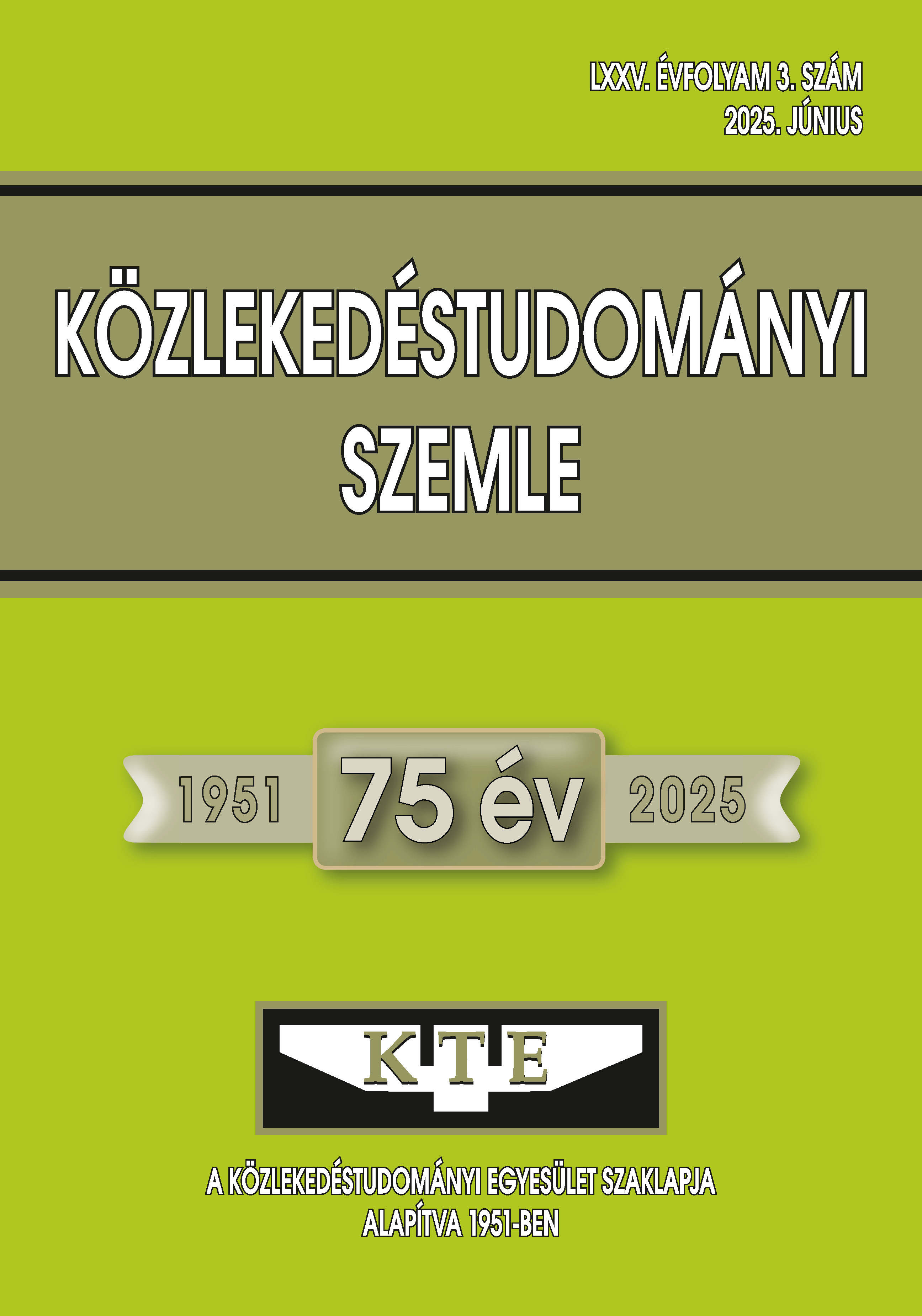A magyarországi útdíjfizetési rendszer változásai, és ezek várható hatása a közúti fuvarozással foglalkozó vállalkozások költségeire alternatív meghajtások esetén
Abstract
A közúti áruszállításhoz kapcsolódóan az infrastruktúra használatáért fizetendő díjak mellett a környezetterhelés mértékével összefüggő tételek megjelenése a jogalkotó szándéka szerint olyan ösztönző feltételeket teremt, amelyek hatására a közúti áruszállításban érdekelt vállalkozások felülvizsgálják a korábbi időszakban alkalmazott amortizációs stratégiájukat, és esetleg a környezetet kevésbé terhelő megoldások irányába mozdulnak el. A környezetbarát üzemű járművek beszerzését megfelelően támogató állami felelősségvállalással összekapcsolva ez a folyamat áttörést hozhat: sikerrel járulhat hozzá a klímavédelmi törekvésekhez, élénkítheti a környezetbarát járművek piacát, és ezzel növelheti az európai és a hazai gazdaság teljesítőképességét. Ezen célok elérése érdekében 2024. január 1-től jelentősen megváltozott a hazai útdíjrendszer, követve az EU-s irányelveket. Új tengelykategória került bevezetésre, bővült a díjköteles hálózat, valamint a forgalomból eredő lokális környezetterhelés
(légszennyezés, zaj) külsőköltség-díját is tartalmazza a fizetendő útdíj. Mindebből kiindulva jelen cikkben azt elemezzük, hogy az útdíj tételek változása, valamint az egyre inkább magának utat törő alternatív, kibocsátásmentes technológiákra való átállás hogyan hathat 10 éves időtávban a fuvarozó vállalkozások működési költségeire.
Articles published electronically are open access (OJS), freely available online and can be downloaded. Authors of articles are not charged any publication or publishing costs (APC). Users have the right to read, download, copy, print, and search the articles, or share the full text with a link.
Authors must declare that their submission has not been previously published in another journal, that financial support has been acknowledged, and that the list of references is complete and accurate, including specification of URLs and DOIs (if available). When submitting a draft article, each author approves the submitted version. Authors guarantee that the article is their original work. Authors are required to participate in the peer review process, follow the advice of reviewers, meet the prescribed deadlines, and, if any, withdraw the submission or correct errors.
All submitted articles are subject to peer review, where the editors request an independent evaluation from at least one expert, ensuring that the reviewer(s) have no conflicts of interest with the authors. The final decision is made by the Editor-in-Chief, who takes into account the evaluations and the suggestions of the editors. The editors and reviewers treat the submission confidentially.
The publisher and editors are committed to maintaining high ethical standards and to preventing publications that involve research misconduct. They follow the COPE guidelines on such ethical issues.
The authors retain copyright and grant the journal the right of first publication under the Creative Commons License (https://creativecommons.org/licenses/by-nc-nd/4.0), which allows others to share the work, while acknowledging the authorship of the work and the first publication in the journal.
The journal archives all published articles, and the journal's owner, the Hungarian Society of Transportation Sciences, will continue to operate the database even if the journal ceases to be published.















